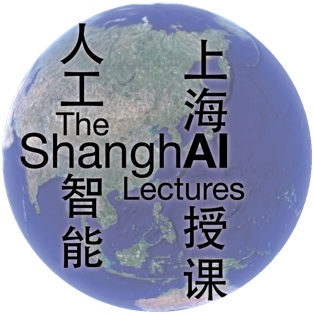
Robohub.org
ShanghAI Lectures 2013, Part 2: Embodied intelligence
 This week we publish the second of the ShanghAI Lectures 2013 Edition on Robohub — we will release a new lecture from this series every Monday until the series is complete. Please use the comments section below to send us your questions, and we will do our best to respond! You can learn more about the ShanghAI lectures here.
This week we publish the second of the ShanghAI Lectures 2013 Edition on Robohub — we will release a new lecture from this series every Monday until the series is complete. Please use the comments section below to send us your questions, and we will do our best to respond! You can learn more about the ShanghAI lectures here.
Lecture 2 – Embodied Intelligence
“Evolution embodies information in every part of every organism. … This information doesn’t have to be copied into the brain at all. It doesn’t have to be “represented” in “data structures” in the nervous system. It can be exploited by the nervous system, however, which is designed to rely on, or exploit, the information in the hormonal systems just as it is designed to rely on, or exploit, the information embodied in your limbs and eyes.” – D.Dennett, Kind of Minds, 1996
Many people will probably agree with Dennett from a philosophical standpoint, but what are the implications for robotics research and robot development?
There are many: What is the Frame-of-Reference problem? How we can get rid of it in principle? How can we get rid of it in practice?
Unfortunately, the real world doesn’t come with labels. How can we associate symbols with a continuous stream of sensory stimulation? What is the cognitive role of physical interaction of the agent with the world? Check Rolf’s lecture to inspire your thoughts.
Guest Lecture – “From Bio-Inspired to Institutional-Inspired Collective Robotics” by Pedro Lima
The implications of the embodied intelligence paradigm are wide and deep.
In this talk Pedro Lima, from the Instituto Superior Tecnico in Lisbon, Portugal, shows how human institutions can be seen as emerging processes in swarms of embodied intelligent agents, a.k.a. ‘robots’. This view has some implication on the economic sciences, too. In Portugal they are sensitive to ‘economics paradigms’ and know that current ones have some flaws :-). On the other hand an ‘institutional-inspired’ approach seems quite beneficial also for network robot development.
Intriguing, right? Watch the full lecture here:
Pedro Lima, is a professor at IST and a leading researcher in robotics and AI, and above all he is a nice guy and a subtle and deep thinker!
About the ShanghAI Lectures
While in the classical approach “intelligence” was essentially viewed as information processing taking place in the brain, the more recent insight that interaction with the environment is of central importance is gaining acceptance. This has led to the metaphor of embodiment, i.e., that intelligence is always a property of an entire organism — an idea that has far-reaching implications and often leads to surprising insights, but which has not so far been widely exploited in industry practice.
The ShanghAI Lectures project aims to:
- Build a sustainable community of students and researchers in the area of Embodied Intelligence
- Make education and knowledge on cutting-edge scientific topics accessible to everyone
- Explore novel methods of knowledge transfer
- Overcome the complexity of a multi-cultural and interdisciplinary learning context
- Bring global teaching to a new level
These lectures about Natural and Artificial Intelligence have been held via videoconference at the University Carlos III of Madrid in Spain, the University of Zurich in Switzerland, Scuola Superiore Sant’Anna of Pisa, Italy, Humboldt University Berlin in Germany, University of Plymouth and University of Salford in the UK, and 10 other universities around the globe. Students from the participating universities are still working together on the exercises, using Webots by Cyberbotics, and Ludobots by the University of Vermont.
The lectures have also been streamed to allow remote participation to anybody.
The ShanghAI Lectures differ from ‘conventional’ MOOCs as they exploit telecommunication technology to build a global, distributed lecture hall that allows rich interaction rather than simply implementing the good old fashioned TV broadcasting model on a different medium. They also differ from other AI courses as they propose a new paradigm approach to embodied cognition (a.k.a. AI and Robotics). It is a kind of Copernican revolution with respect to GOFAI and its robotics application — and thus a research program for the coming decades.
This year I coordinated the lectures, with help from Prof. Rolf Pfeifer and Dr. Nathan Labhart at the University of Zurich . Rolf Pfeifer and I provided the context (introduction, moderation, and conclusion). As always, there were 2-3 invited guest lectures each week.
tags: c-Education-DIY, Embodied Cognition, Fabio Bonsignorio, ShanghAI Lectures 2013





